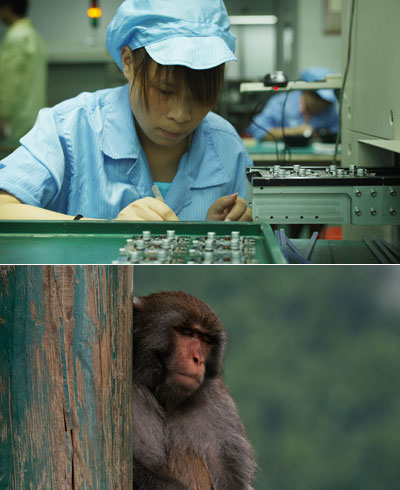 |
|
Chinese documentaries like How China Works (top) and Roof of the World (above) are reaching out to global audiences.[Photo provided to China Daily] |
International collaboration was also a trend in 2014, the report found.
CCTV, for example, joined hands with foreign channels like BBC and Animal Planet to make Hidden Kingdoms and The End of the Wild. Both were hits in China.
China International Communication Center, a cultural agency, has also worked with Discovery to produce a series of China-themed documentaries, starting with How China Works, and it will be available via Discovery's international networks.
Local productions are also exploring ways to go abroad. In 2014, CCTV licensed 2,000 hours of documentaries to be broadcast in 81 countries, and China International Communication Center tries to distribute 100 hours of documentaries overseas every year.
"Documentary is the best way to tell Chinese stories," says Jing Shuiqing, deputy director of the center.
But how to tell the stories for a global audience is still a goal for the local documentary makers.
The Roof of the World, for example, cast aside grand narratives and political themes in favor of showing rich details about the everyday lives and natural landscapes on the Qinghai-Tibet Plateau.
Soon to be available on National Geographic foreign networks, the documentary is believed to also have global appeal. It has tentatively altered its logic of expression, which will also make it more adaptable to international tastes, says Yu Guoming, a professor of journalism at Renmin University of China.
But like all entrepreneurs, documentary makers might also want some money, and the lure of theaters exists in some quarters.
Two documentaries had the chance to be shown in Chinese cinemas last year. No Zuo No Die, made from recordings of backstage scenes of a popular reality TV show, grossed 6.7 million yuan at the box office, while Where Are We Going Dad, another TV-based production, made 700 million yuan.
But in the past critics questioned if Where Are We Going Dad qualified as a documentary.
Documentary makers need to think more about larger audience tastes than pursuing their personal styles, said Zhang Yaxin at a recent industry forum. Zhang is the director for Communication University of China's TV research center and also a judge of the documentary sector at the Beijing film festival.
Documentaries could make use of online data to make a dent into the viewers' market, documentary distributor Xu Guangyu was quoted as saying at the same forum by Sina Entertainment.
"It's not that documentaries don't have audiences. It's about how to locate them," Xu says.
|
|
|
|
|
|
|
|
